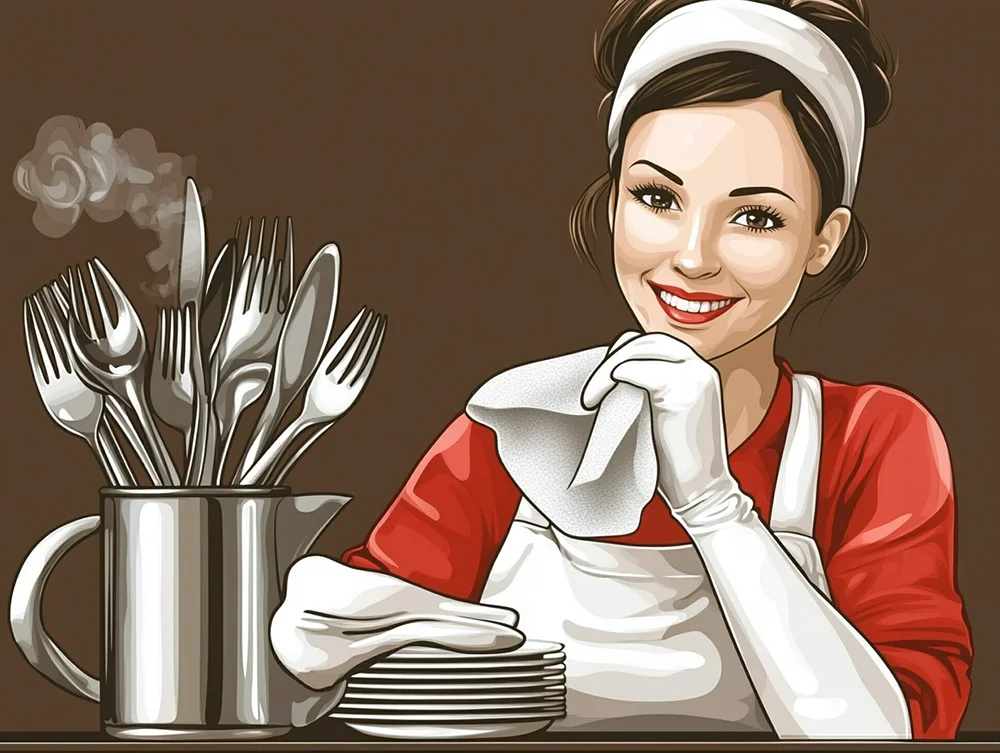Jane used to be in charge of cleaning the brass candlesticks and the like in our local church (made sense – she was the vicar’s wife, after all). We used this pink proprietary polish for the brass that always made my hands itch after using it when I helped her polish everything. And then there was another polish for the silver chalices that had to be cleaned off thoroughly so we didn’t end up poisoning the whole congregation by mistake.
Is there some way to polish metal so it’s bright and gleaming the way it ought to be without leaving your hands itchy with harsh chemicals? Apparently, there is, and I don’t mean wearing rubber gloves, a solution used by many to protect sensitive skin when doing regular domestic cleaning.
How to Clean Silver
You can use aluminium foil, baking soda and boiling water to clean silver. No, you will not have to put your hands in boiling water – that’s worse than any chemicals.
You do it this way:
- line a bucket with aluminium foil and put the silver things to be cleaned on top.
- Mix boiling water and sodium bicarbonate – one teaspoon of soda to one cup of boiling water.
- Pour it over the silver and let it react – you should see bubbles rising.
- Once this happens, fish the silverware out with tongs, rinse it well and rub it dry with a soft cloth.
A similar method is supposed to work for grubby oven racks, except you coat the rungs of the racks with a paste of sodium bicarbonate and then wrap each rung with aluminium foil. Then, you put them in the bath, pour hot water over them, and let the aluminium and baking soda react and do their job. Dip the spoon (or other silver) in the water for silver with egg stains, and the eggs are boiled in to remove the stains.
I can’t vouch for this one, as I have learned by experience that eating boiled eggs with a silver spoon tastes weird as the sulphur in the egg reacts with the silver.
A cream of tartar mixed with a paste with water is also good for cleaning silver. Don’t expect to do this one quickly – it takes a week. If you want to try this method, wash the dried paste off the silver at the end of the week with hot, soapy water.
How to Clean Brass
Mix equal portions of white flour, vinegar, and salt to clean brass. Rub the paste on the brass, leave it to dry—just like regular polish—and wipe off with a damp cloth. Half a lemon dipped in salt can scrub badly stained brass.
How to Clean Copper
One traditional method for cleaning copper is to use buttermilk – wipe it on and leave for ten minutes before cleaning off with a damp cloth. But who has buttermilk these days? Instead, use a paste made from salt and vinegar. Rub this on, leave it for a minute or so, then rub off again. The book I found this tip in did not mention whether keeping salt and vinegar crisps in a copper bowl helps keep the bowl clean, but I wouldn’t recommend it, as copper isn’t good for you in large amounts.
How to Clean Other Metals
Other metals not listed above can be cleaned with plain old baking soda and a bit of water mixed to a paste. With this method, you have to leave the paste to cake on for an hour so it can react with the corroded metal. Then, take the old paste off with a damp cloth.
There is a lot to be said for good old stainless steel – it’s so easy to clean and keep shiny.
